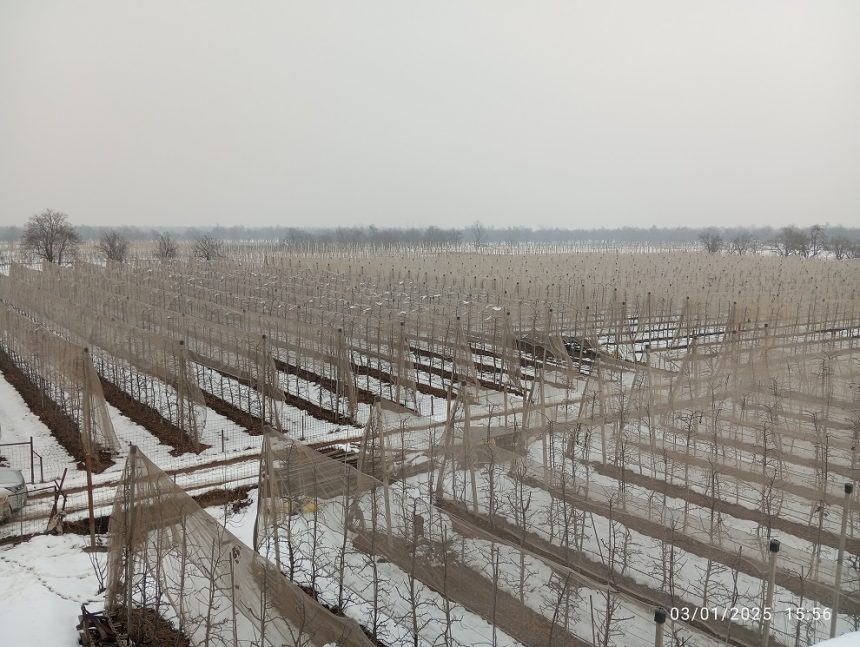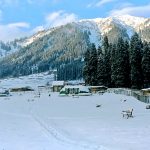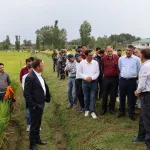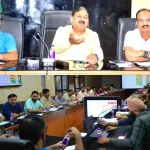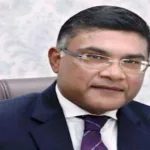Pulwama, Jan 03: Chief Minister Omar Abdullah’s recent statement that the government might consider relocating the proposed National Institute of Technology (NIT) in Pulwama if there is collective opposition from the people has sparked mixed reactions among the residents of this southern district.
The farming community of Newa and adjoining villages expressed their gratitude to the Chief Minister for his “assurance”.
Days earlier, a group of farmers from Newa and neighbouring areas staged a protest outside his residence in Srinagar, seeking intervention to relocate the proposed NIT from the Karewa land.
“We were satisfied with his assurance,” said Nazrul Islam, a young farmer from Newa. He noted that an elected government values the concerns of its people.
Omar Abdullah, addressing media at SKICC in Srinagar, acknowledged that a delegation of farmers had raised concerns about the land being used for almond orchards. He said that if the people collectively opposed the project, the government would consider alternative locations.
Nazrul Islam, who owns a high-density (HD) apple orchard spread over 12 kanals of Karewa land, said that 12 villages across four assembly constituencies—Pulwama, Rajpora, Pampore, and Chadoora—would be impacted by the project. “MLAs from all four constituencies have voiced their support for relocating the NIT to protect the livelihoods of farmers,” he added.
Arif Ahmad Wani, an MCA student whose family depends on a high-density apple orchard in Newa, shared similar concerns. “Our family of seven relies solely on apple farming. Establishing the NIT here would rob us of our only source of income,” he said, adding that more than 10,000 families would be affected by the proposed land acquisition.
The farmers said that the Karewa supports Kashmir’s major almond cultivation and that acquiring 5,000 kanals of land would pose a severe threat to the crop.
“Almond cultivation will become extinct,” they warned, suggesting the NIT be relocated to unproductive areas like Bathen in Pampore or Tral.
However, other residents, particularly from Pulwama town and nearby villages, have voiced support for establishing the NIT in Pulwama. Representatives of local auqaaf committees have publicly demanded the government proceed with the project, even advocating for it during Friday prayers at the Jamia Masjid.
Youth from various areas have also expressed their support, realising the transformative potential of the NIT.
“It will provide access to quality education and generate new employment opportunities,” they said.
Dar Mudasir, a prominent social activist, described the NIT as a “golden opportunity” to redefine Pulwama’s future.
“The NIT has the potential to transform Pulwama into a hub of education, innovation, and national integration,” he said. Mudasir lamented the attempts by some political forces to relocate the project for “narrow interests.”


